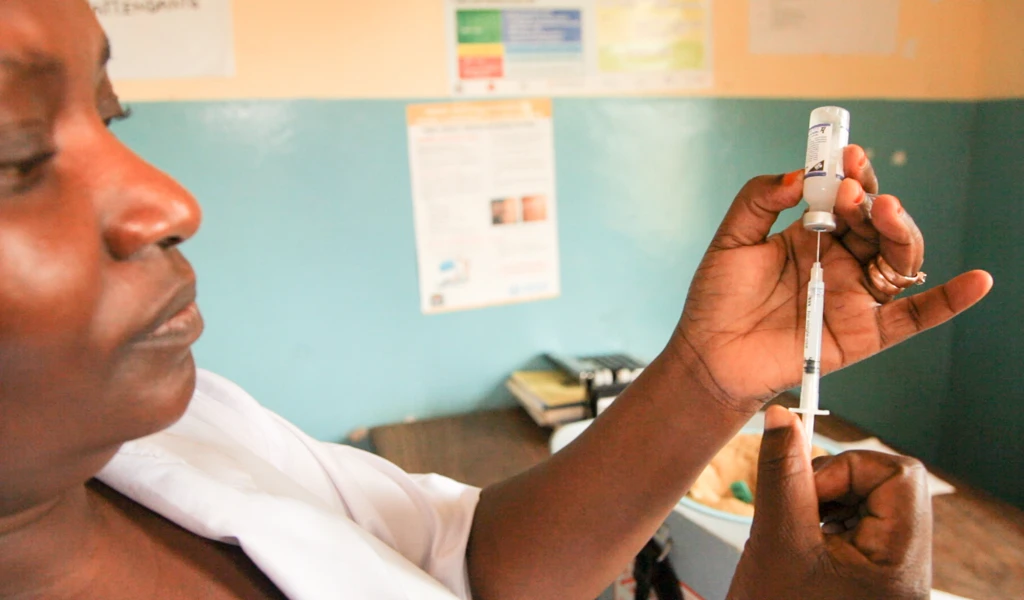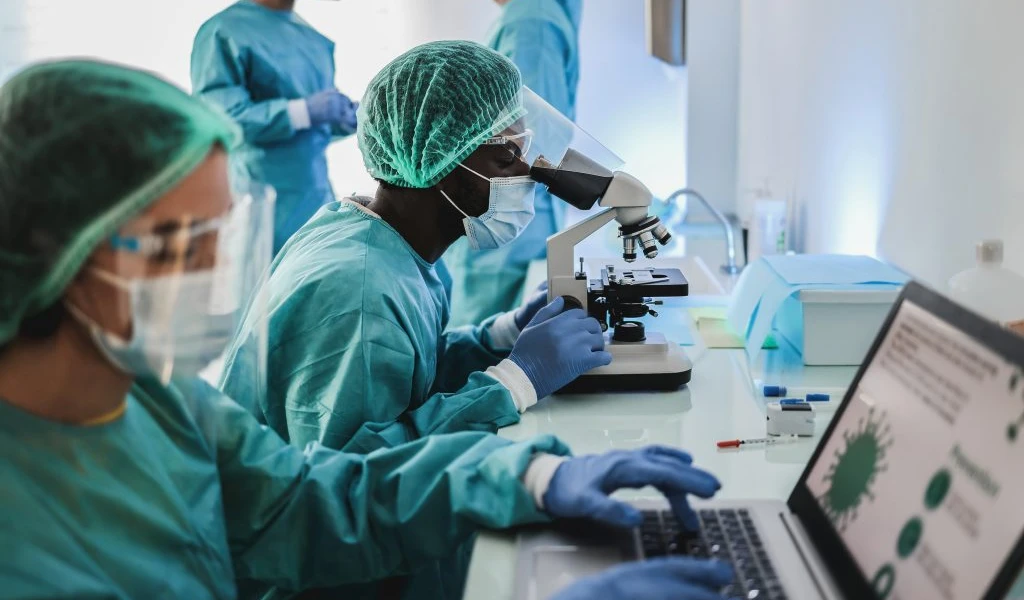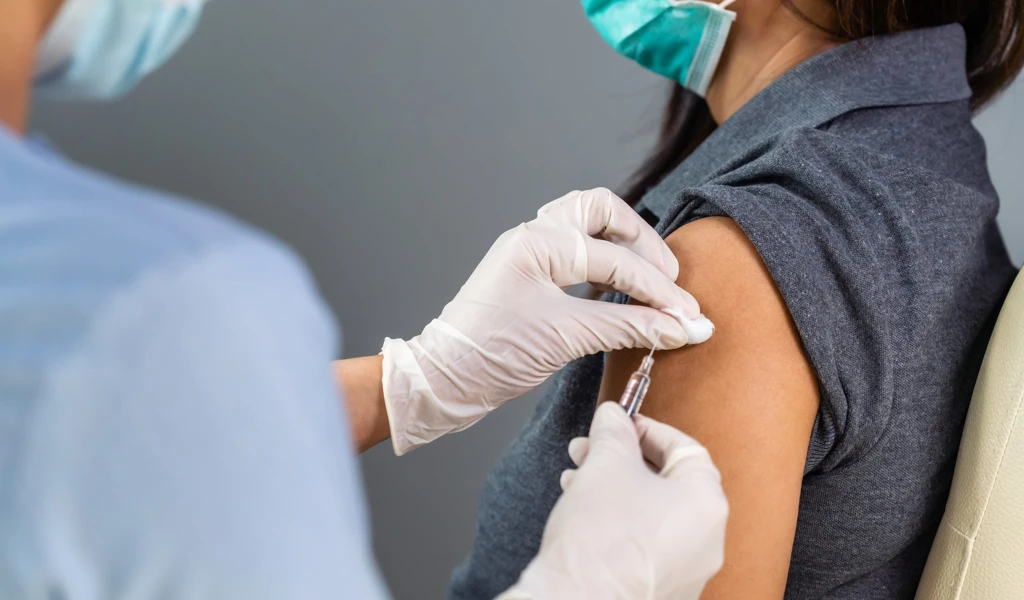US$3.5 billion replenishment strategy aims to cut vaccine development timeline for new pandemics by two-thirds to 100 days
OSLO, 10 March 2021 — CEPI, the Coalition for Epidemic Preparedness Innovations, today launched a US$3.5bn plan to dramatically reduce or even eliminate the future risk of pandemics and epidemics, potentially averting millions of deaths and trillions of dollars in economic damage.
CEPI's five-year plan sets out ambitious initiatives to build a future world that is better equipped to deal with these devastating diseases. As part of the plan, CEPI announced its "moonshot" objective to help compress vaccine development timelines to 100 days, about a third of the time that it took the world to develop a COVID-19 vaccine.
Launched in 2017, CEPI has played a central role in the global response to COVID-19, creating the world's largest portfolio of COVID-19 vaccines and helping to make 2 billion doses equitably accessible to 190 participating economies through COVAX in 2021. During this period, CEPI has also overseen several scientific breakthroughs in developing vaccines against other infectious diseases, including the first phase 3 trial of a Chikungunya vaccine and the advancement of the first ever Nipah virus and Lassa virus vaccines into phase 1 clinical trials.
However, there is an urgent need to do more to mitigate the immediate threat of COVID-19 variants and to prepare now, for the next pandemic.
CEPI is calling on governments, global health organisations, and strategic partners to back this critical investment in global health security, taking advantage of the revolution in vaccinology that has been catalysed by COVID-19. CEPI's plan will not only accelerate vaccine development and reduce the threat posed by future epidemics and pandemics, it will also enable equitable access to these life-saving innovations for the most vulnerable populations. As a globally recognised organising force for R&D collaboration and innovation, CEPI is uniquely placed to coordinate this international approach.
During the COVID-19 pandemic, the time from the release of the SARS-CoV-2 genetic sequence to the submission of Pfizer/BioNTech Phase 3 clinical trial data for regulatory review was 314 days.
We are at a critical point in human history. We now have the tools to dramatically reduce or eliminate the risk of future epidemics and pandemics. Achieving such a goal will take a coordinated and collective global response, and CEPI's contributions will be central to this long-term global effort.
We must invest now in the vaccines and biologic countermeasures that we need, while linking these investments with commitments to equitable access. The $3.5 billion CEPI needs to implement our five-year strategy represents a critical down payment towards the goal of a world safe from the devastating effects of epidemic and pandemic diseases.
How CEPI will allocate the US$3.5 billion to tackle future pandemics and epidemics
CEPI will allocate the US$3.5bn to prepare for known epidemic and pandemic threats, transform the response to the next novel threat, and connect and enhance global collaboration to strengthen global preparedness. CEPI will work to substantially reduce global epidemic and pandemic risk by:
1.Strengthening our defenses against COVID-19 and reducing the risk of future coronavirus pandemics, by optimizing our current vaccines, addressing variants of concern, developing next-generation COVID-19 vaccines, and initiating the development of broadly protective or universal coronavirus vaccines.
2.Developing vaccines for known threats, to include completing the development of vaccines for Chikungunya, Lassa Fever, Nipah, and MERS, advancing the development of vaccines against Rift Valley Fever, and completing additional clinical trials to broaden the populations eligible for the Ebola vaccines.
3.Working to compress vaccine development timelines to 100 days by optimizing the capabilities of rapid response platforms including mRNA, preparing clinical trial networks to respond rapidly to new threats, working closely with global regulators to streamline regulatory requirements, and linking manufacturing facilities to enable rapid production of pandemic vaccines.
4.Producing a library of prototype vaccines and other biological interventions against representative pathogens from critical viral families. The "library of prototype vaccines" will be developed through phase 1 clinical trials and use rapid response platforms that will allow rapid adaptation if related viruses emerge.
5. Establishing global networks for lab capacity, assays, and preclinical models that are critical for rapid vaccine development and developing arrangements with existing national or regional clinical trial and manufacturing networks.
6. Supporting the efforts of low- and middle-income countries to take full ownership of their national health security by developing the infrastructure and expertise to conduct epidemiological and clinical studies, support technology transfer, and establish national and regional vaccine manufacturing.
-ENDS-
Notes to the editor
CEPI's $3.5 billion investment case — The Urgency of Now. Turning the tide against epidemic and pandemic infectious diseases
The full investment case may be accessed at endpandemics.cepi.net.
About CEPI
CEPI is an innovative partnership between public, private, philanthropic, and civil organisations, launched at Davos in 2017, to develop vaccines to stop future epidemics. CEPI has moved with great urgency and in coordination with WHO in response to the emergence of COVID-19. CEPI has initiated 11 partnerships to develop vaccines against the novel coronavirus. The programmes are leveraging rapid response platforms already supported by CEPI as well as new partnerships.
Before the emergence of COVID-19, CEPI's priority diseases included Ebola virus, Lassa virus, Middle East Respiratory Syndrome coronavirus, Nipah virus, Rift Valley Fever and Chikungunya virus. CEPI also invested in platform technologies that can be used for rapid vaccine and immunoprophylactic development against unknown pathogens (Disease X).
CEPI's coalition
CEPI's founders and initial investors are the governments of Norway, Germany, Japan, India, the World Economic Forum, the Bill & Melinda Gates Foundation and Wellcome.
A full list of CEPI's financial supporters can be found here.
For more information, please contact:
CEPI Press Office
+44 7387 055214
[email protected]



